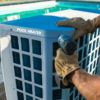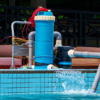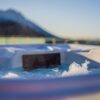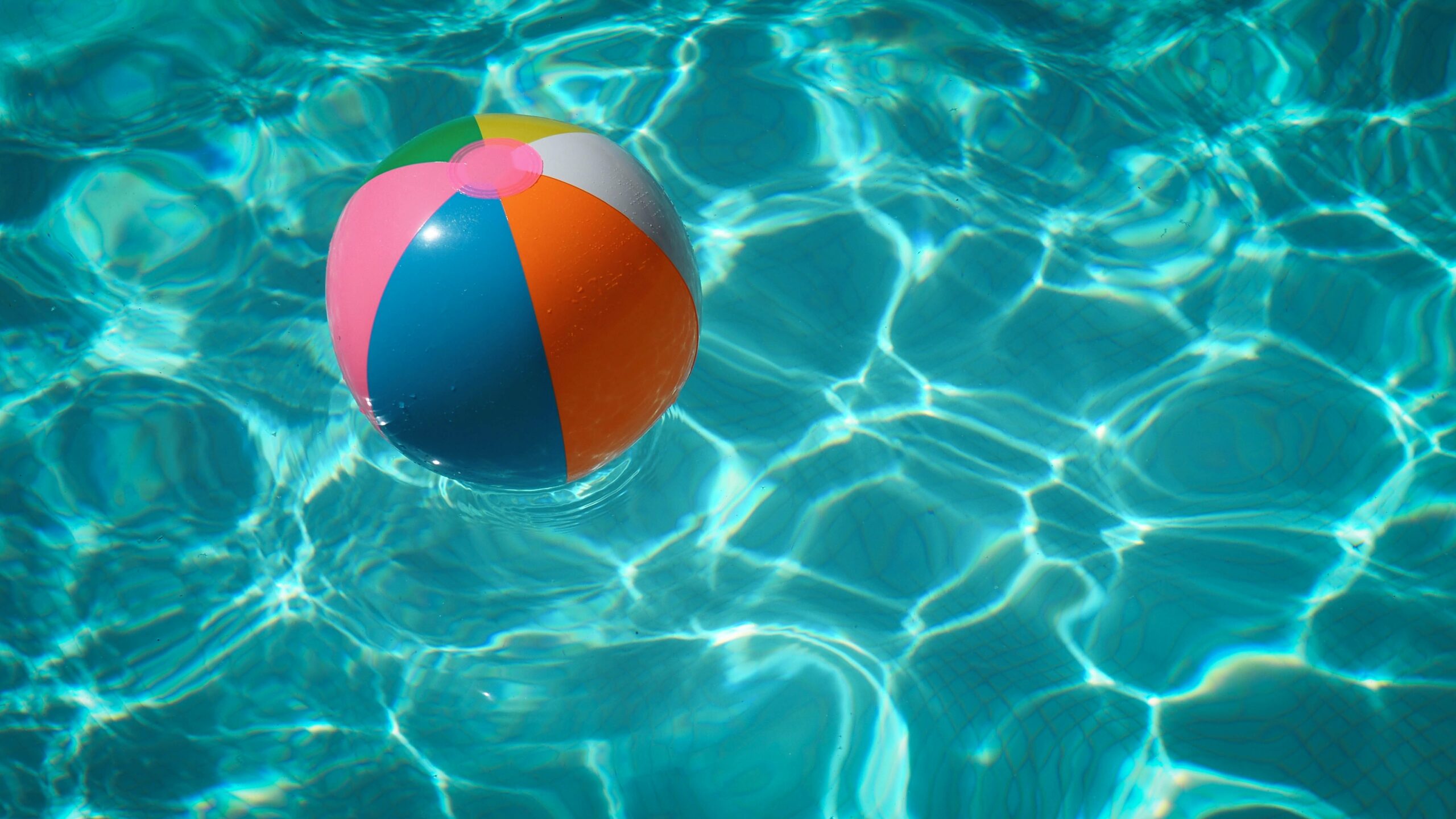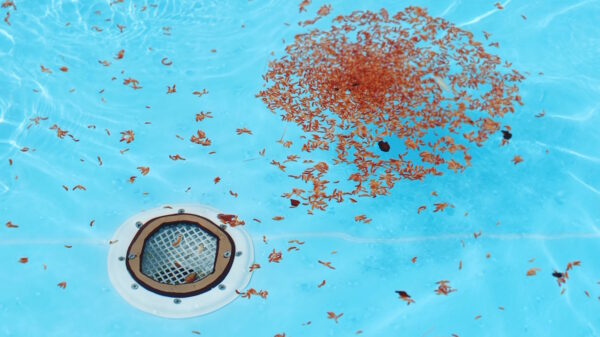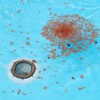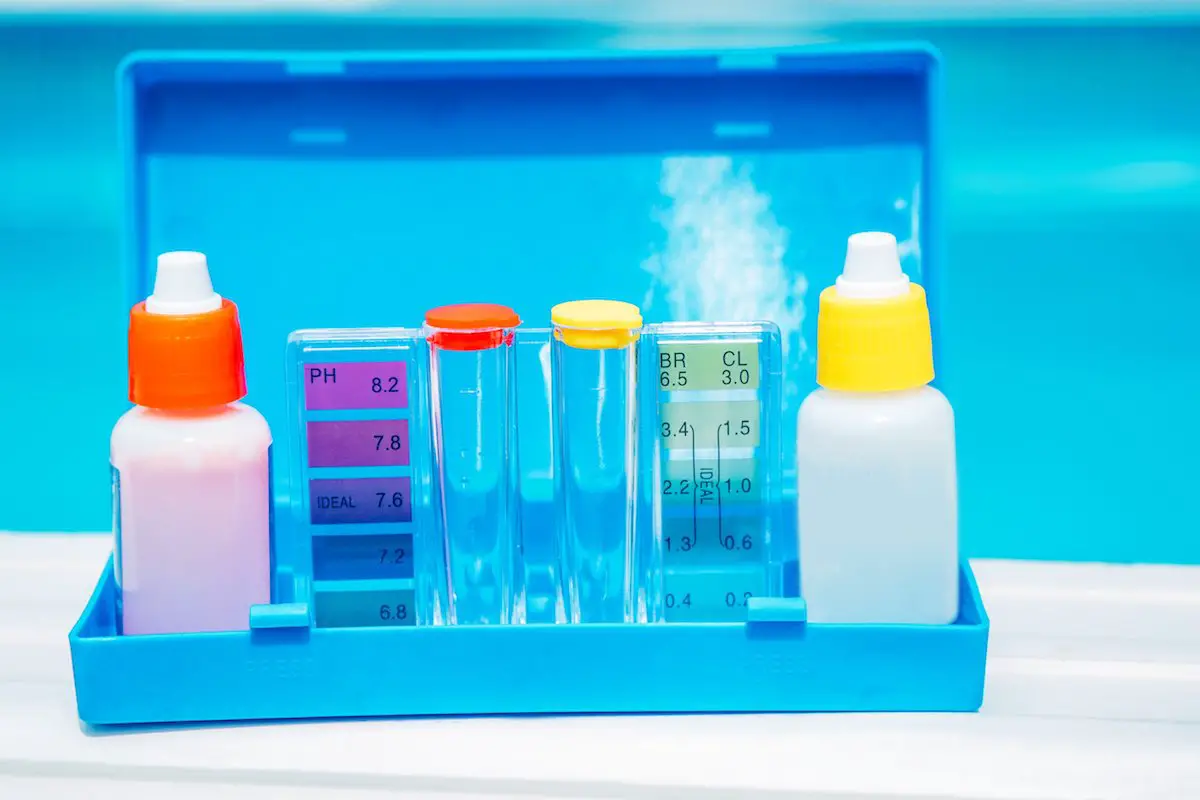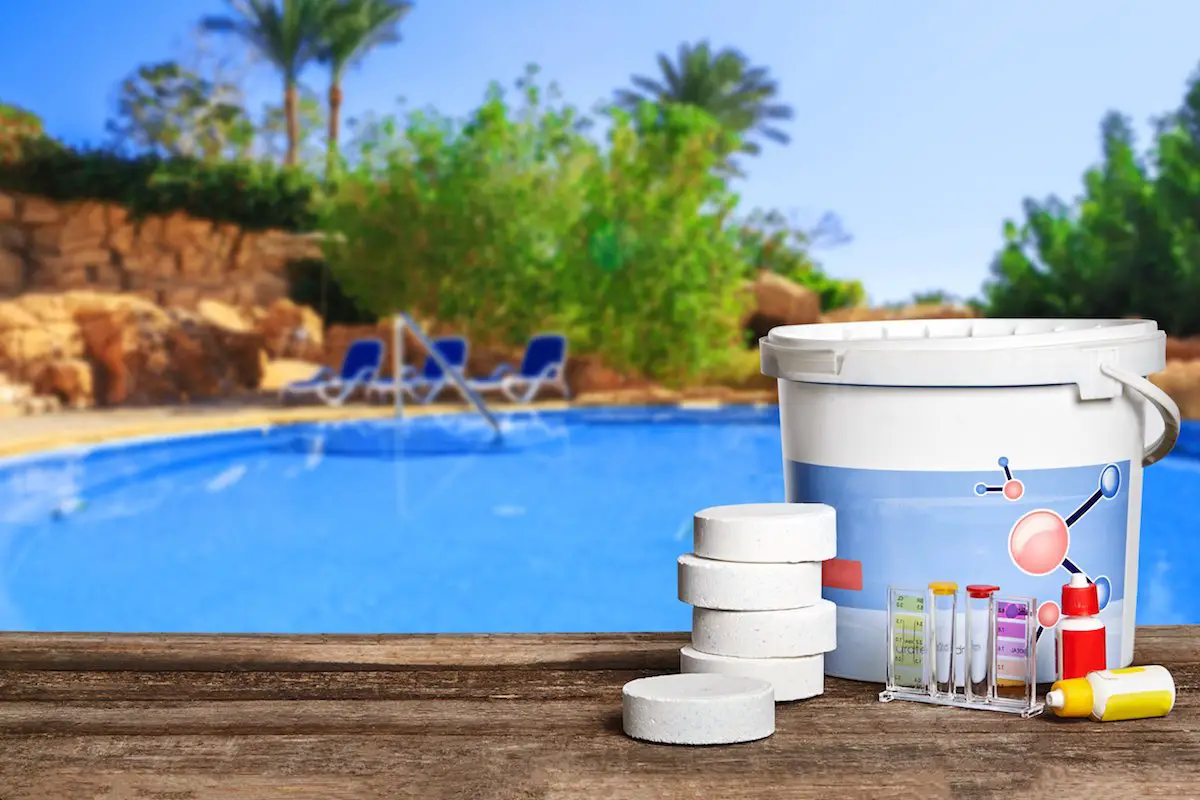What Is the Film On Top of the Pool After Shocking?
Keeping a pool clean is a lot of work, and a significant part of this process is regularly shocking it. Sometimes, however, this doesn’t always result in perfectly clear water right away. So, what is the film on top of the pool after shocking?
The film that can appear on top of the pool after shocking it is usually just chlorine that hasn’t fully dissipated yet. It can also be debris or dirt that’s collected in the pool or algae and bacteria that have been growing in the water.
In this blog post, we will discuss the various things you can do to remove this film from your pool’s surface and how to prevent it from forming again. So, keep reading on to find out this and more!

What To Do About the Film On Top of Pool Water After You Shock It
After you shock your pool (adding chlorine or other sanitizers to raise the free chlorine level quickly), it’s common for there to be a cloudy film on top of the water.
Often, this film is just chlorine that has not yet had a chance to fully dissipate and do its job. If this is the case, the film will usually clear up on its own within a day or two.
However, there are a few other reasons you might be seeing a film on top of your pool water after you shock it, such as an excess amount of dust and debris or an overgrowth of algae or bacteria that the shock didn’t kill.
Whatever the cause may be, here are some effective solutions for removing this film and preventing it from forming in the future.
First, make sure you are using the right amount of shock for your pool size. If you use too much, it will take longer for the chlorine to dissipate, which can result in a film forming on top of the water.
Second, be sure to run your pool filter regularly. Dust, pollen, and other debris can often be the culprit of pool film, and this will help to remove any debris that might be contributing to the cloudy water. Giving your pool a good vacuum will also help to remove any dirt or debris that could be creating the film as well.
Finally, check to make sure you’re using a pool shock that kills algae and bacteria, as these can build up and create a biofilm in your pool water, and not all pool shock kills them. Shocking your pool regularly with a substance that kills these organisms will help to keep them from growing.
If you notice a film on your pool water after shocking it, don’t panic, but also don’t swim in it until you’ve cleared it up, since a film can often be an indicator of pH levels or bacteria and algae growth that is harmful to humans.
What Shocking a Pool Does (And Why You Should Do It)
Shocking a pool is the process of adding a large amount of chlorine (or other sanitizers) to the water all at once in order to raise the free chlorine level quickly. This free chlorine will then work to kill any contaminants that might be present in the water.
Shocking a pool is an important part of keeping the water clean and safe for swimming, and it should be done regularly, usually about once a week or so. However, it can be done more or less often depending on how often the pool is used, the weather, and other factors.
Shocking your pool is an important part of keeping a pool clean and safe for swimming, and it should not be ignored.
Best Methods for Shocking a Pool
There are a few different methods you can use to shock your pool, and the best method for you will likely depend on a few factors, such as the size of your pool, the type of pool you have, and the severity of the contamination.
Here are a few of the most common methods for shocking a pool (all of them kill algae and bacteria):
Chlorine Tablets
This is one of the most common and easiest ways to shock a pool. You simply add the chlorine tablets to the skimmer basket or directly into the water and let them dissolve. The number of chlorine tablets you’ll need will depend on the size of your pool.

Liquid Chlorine
This method is similar to using chlorine tablets, but you’ll add liquid chlorine to the pool instead of tablets. Again, the amount you’ll need to add will depend on the size of your pool.
Calcium Hypochlorite
Calcium hypochlorite is a granular form of chlorine that you’ll need to dissolve in water before adding it to your pool. The amount you’ll need will depend on the size of your pool and the contamination level.
Tips for Shocking Your Pool
Here are a few tips to help you get the most out of shocking your pool:
1. Test your pool water before shocking it.
This will help you determine how much shock you’ll need to add based on the current levels of chlorine and other contaminants present.
2. Choose the right kind of shock.
There are different types of pool shock available on the market, so be sure to choose one that is designed for your type of pool and your cleaning needs.
3. Add the shock at night.
The UV rays from the sun can cause the chlorine to dissipate more quickly, so adding it at night will help to keep the chlorine levels high for longer, allowing it to kill more contaminants.
4. Don’t swim for at least 24 hours after shocking.
This will give the chlorine ample time to work and then dissipate to a safe level.
5. Be sure to shock your pool regularly.
This is one of the most important tips when it comes to keeping a pool clean and safe for swimming. Shocking your pool regularly will help to ensure that any contaminants are quickly killed and that your pool stays clean and safe.

What are some signs I should shock my pool?
Here are a few signs that it might be time to shock your pool:
1. The water is cloudy or has a green tint.
2. There is a strong chlorine odor coming from the pool.
3. You can see algae or other contaminants in the water.
4. Test strips show that the chlorine or other chemical levels are low.
5. It’s been about a week or you’ve had a lot of people swim in your pool since you last shocked it.
If you notice any of these signs, it’s probably time to shock your pool. By shocking your pool on a regular basis, you can help to ensure that the water stays clean and safe for swimming.
Related Questions
Is shocking a pool safe?
Yes, shocking a pool is safe when done properly. However, it’s important to follow the directions on the shock package and never add more shock than what is recommended. Adding too much shock can cause skin irritation, eye irritation, and respiratory problems.
Can I shock my pool too often?
No, you cannot shock your pool too often. In fact, it’s actually recommended that you shock your pool on a regular basis to help keep the water clean and safe for swimming.


